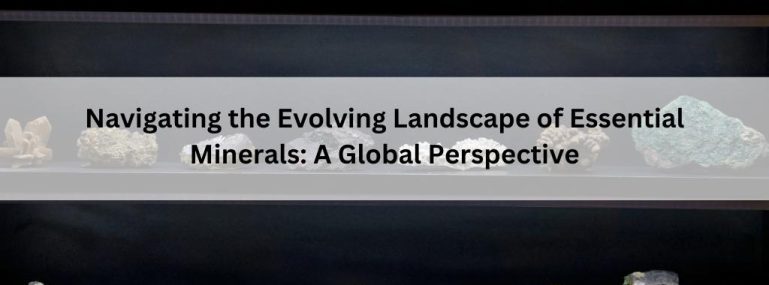The global dynamics of critical minerals play a pivotal role in the development of high-tech industries, renewable energy, defence systems, and electric vehicles. These minerals, such as rare earth elements, lithium, and cobalt, are essential for modern technologies, contributing to economic growth and industrial sustainability. Recognizing their geopolitical significance, technical importance, and environmental implications is crucial.
Critical Minerals List of the EU:
- Alumina, Bauxite, and Aluminium
- Mercury
- Metals in the Platinum Group
- Tungsten
- Nickel
- Copper
- Cobalt
- Of the 34 essential raw materials, 17 are strategic.
| Country | Initiatives and Regulations |
| United States | The United States government has actively promoted critical minerals’ production, research, development, and recycling through legislative acts such as the Energy Act 2020 and America’s Strategy to Secure the Supply Chain for a Robust Clean Energy Transition in 2022. |
| European Union | The European Union proposed the Critical Raw Materials Act (CRM Act) in 2023 to ensure access to a secure and sustainable supply of critical raw materials and lessen the dependency on critical raw materials, enabling Europe to meet its 2030 climate and digital objectives. |
| Australia | Australia created a Critical Mineral Strategy in 2022 to emphasize the importance of having a consistent supply of essential minerals. As one of the leading producers of critical minerals, the country intends to accomplish this by exploring new sources of supply, establishing strong supply chains, and cultivating international relationships to meet emission targets and transition to clean energy. |
The global landscape is grappling with challenges concerning critical minerals supply chains, intensified by their “critical” designation. These challenges encompass overreliance on specific nations, ethical quandaries surrounding sourcing practices, and the imperative for cleaner mining technologies. With escalating demand for these minerals pivotal in achieving global net-zero objectives, supply chain resilience is under threat.
Various international and national endeavours are underway to confront these challenges head-on. Initiatives such as the Critical Minerals Mapping Initiative (CMMI) endeavour to establish a comprehensive global database, explore novel sources, and evaluate the significance of essential minerals. Nations like the United States, European Union, and Australia have enacted legislative measures and strategic frameworks aimed at bolstering domestic production, fostering research and development, promoting recycling, and securing supply chains. The pathway to resolution involves diversifying supply chains, embracing technological advancements for sustainable extraction, and fostering robust international collaboration.
Impacts and Benefits:
- Diversified Supply Chains: Mitigating risks and fortifying mineral supply chains to support global net-zero ambitions.
- Technological Innovations: Spearheading environmentally conscious mineral extraction methods to bolster the circular economy.
- International Collaboration: Facilitating equitable distribution of resources, championing responsible mining practices, and fostering effective global partnerships.
- Environmental and Social Accountability: Advocating for cleaner technologies, sustainable methodologies, and ethical sourcing to address environmental and social imperatives.
ComplianceXL aids enterprises in adhering to the Critical Minerals Regulation Act by assisting in the acquisition of pertinent information regarding critical minerals for their products. Additionally, we provide maintenance services to ensure regulatory documentation remains current and up to date.
FAQs:
What are critical minerals?
Critical minerals are specific elements essential for modern technologies, playing a vital role in economic growth and industrial sustainability.
How are countries addressing critical mineral challenges?
Countries are implementing legislative acts, strategic initiatives, and international collaborations to secure supply chains, diversify sources, and promote sustainable practices.
Why is diversification of supply chains important?
Diversifying supply chains reduces risks and ensures resilience, especially in the face of increasing demand for critical minerals to achieve global net-zero goals.





